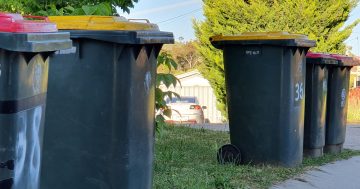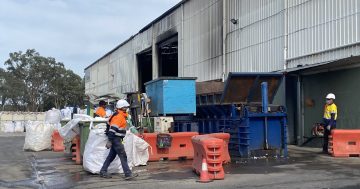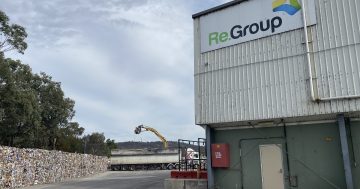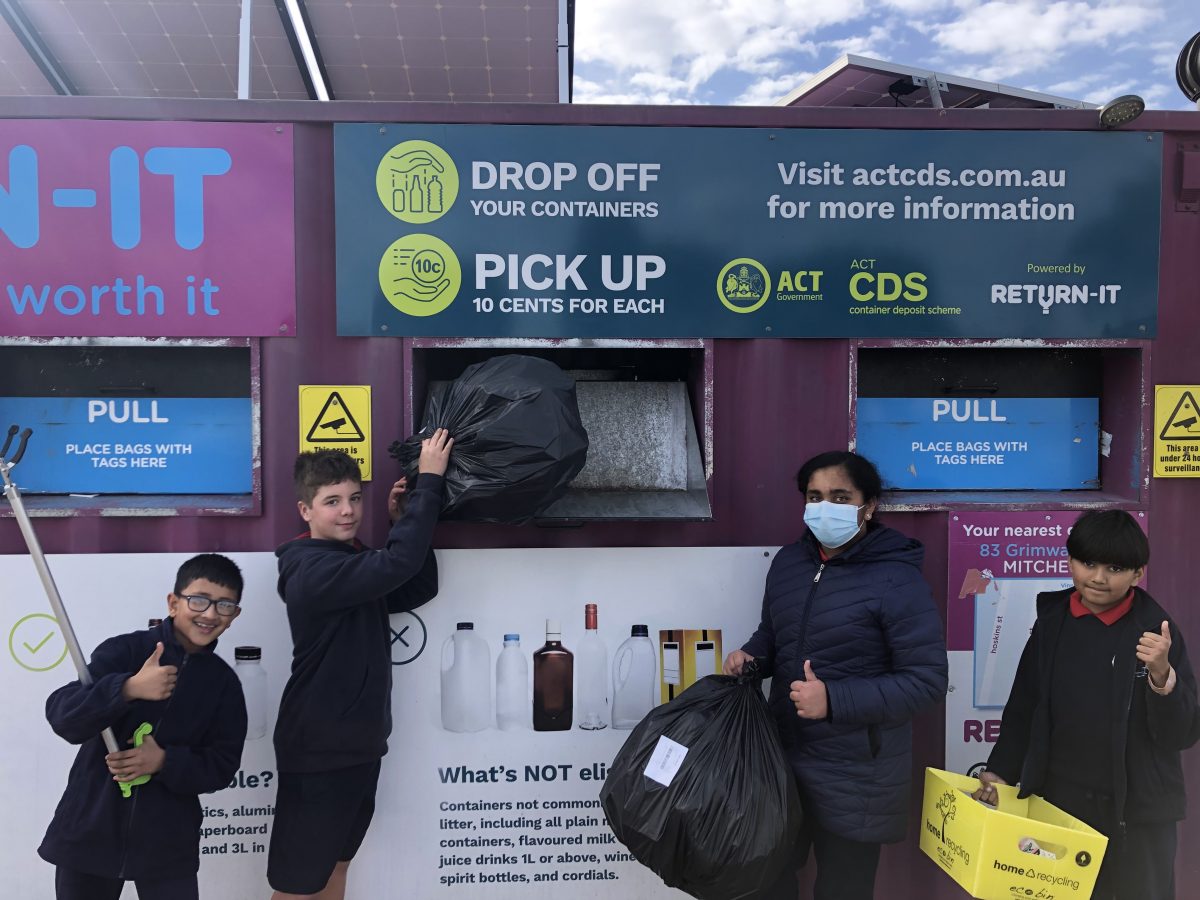
Students from Amaroo Primary School have jumped on board with the container deposit scheme, using it to raise money for their school’s sustainability projects. Photo: Wendy Bruere.
The Territory government will next year explore expanding the popular container deposit scheme to items including wine, spirit and cordial bottles.
Minister for Transport and City Services Chris Steel made the announcement as part of National Recycling Week.
The scheme – similar to those operating in other jurisdictions – lets Canberrans get a 10 cent rebate for containers deposited at collection points. Plastic water bottles, cans and glass beer or soft drink bottles are currently eligible.
More than 366 million cans and bottles have already been recycled through the scheme since it kicked off in 2018 and 66 per cent of adults in the Territory have used the scheme at least once since it began.
School and community groups have also jumped on board, collecting bottles to deposit as part of fundraising efforts.
Amaroo School students managed to collect 5000 bottles in a 12-month period and raised $500 for sustainability projects earlier this year.
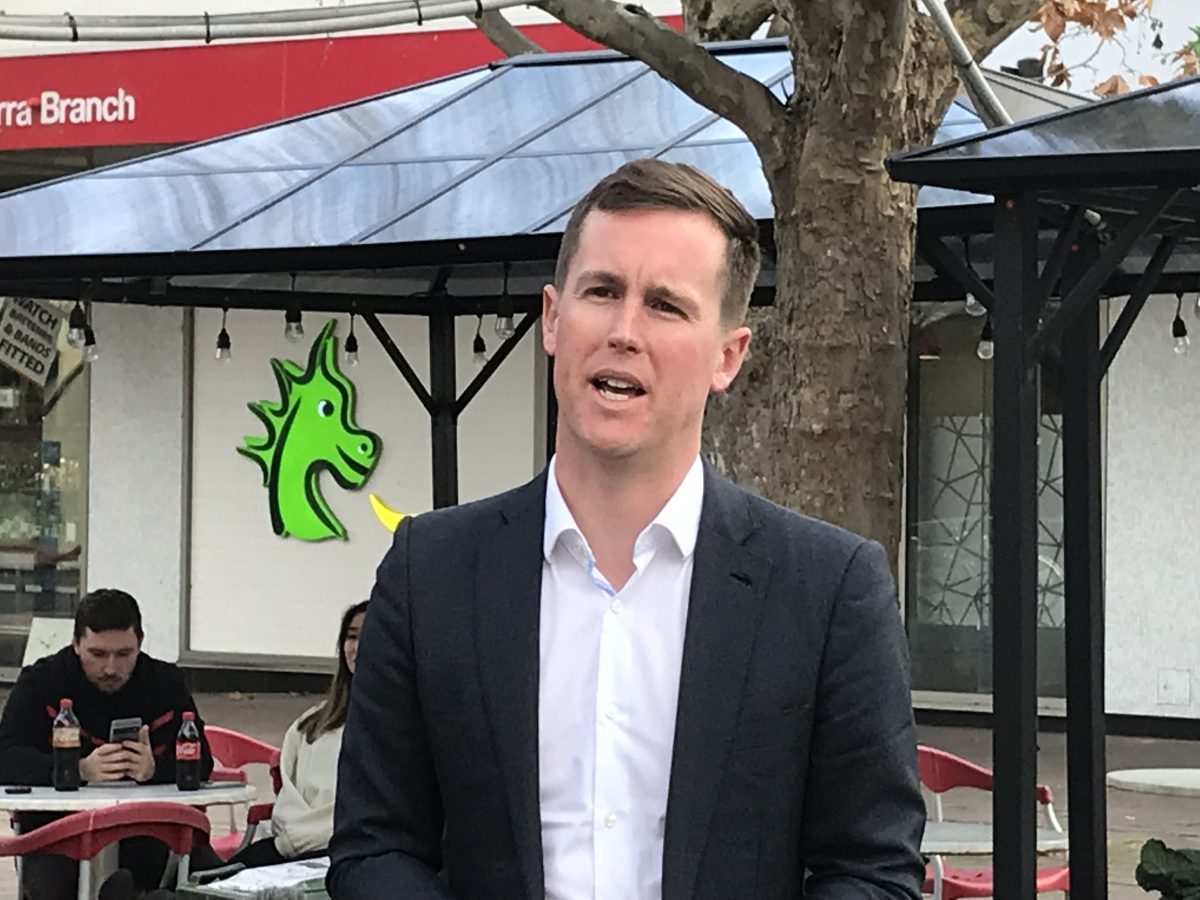
Minister for Transport and City Services Chris Steel says the government hopes expanding the eligibility of the scheme will further increase its popularity. Photo: Lottie Twyford.
“The ACT has one of the highest redemption rates in the country for containers with South Australia,” Mr Steel said.
“Expanding the types of containers eligible to redeem a deposit will see more containers go on to be recycled and remanufactured.”
Earlier this year, the government opened the first reverse vending machine for container deposits – taking the total number of drop-off points in the Territory to 20. Working under a slightly different model to the NSW scheme, users are required to first set up an online account.
But some have complained this reverse vending machine is slower and more complicated to use when compared to larger deposit sites such as in Mitchell and Fyshwick.
A newly released Impact Calculator can show Canberrans how much difference their decision to recycle containers through the scheme can have on the environment.
For example, it calculates a household that deposits 400 containers will save the equivalent of 267,440 litres of water or 289 minutes of showering; 620.40 megajoules of energy or enough to power a television for 643 hours; or 27.6 kilograms of material from going to landfill.
“It’s a great addition to the suite of education resources already out there and it means people can see how their efforts to reduce waste can have a positive impact to save precious resources,” Mr Steel said.
The government last month launched its draft circular economy strategy which looks at new ways of keeping materials in use for as long as possible.
Banning unnecessary single-use plastics and addressing organic waste are high on the government’s priority list.
Plans to roll out the Food Organics, Garden Organics (FOGO) trial to the entire city and build a new large-scale processing and composting facility form part of this list.
More information on the ACT Container Deposit Scheme is available online and you can have your say on the draft circular economy strategy.












